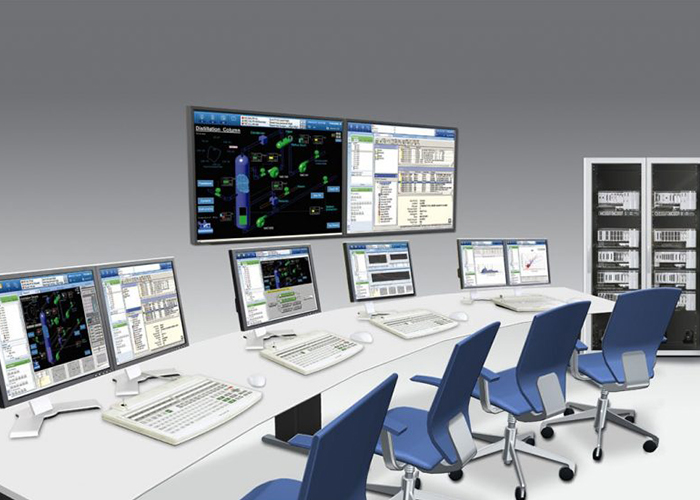Our Online Distributed Control System (DCS) training program is meticulously designed to provide both freshers and experienced professionals with in-depth knowledge and hands-on experience in DCS technology.
Participants will learn about system architecture, components, and configurations of DCS, gaining hands-on practical experience on DCS tools with real-world scenarios.

Distributed Control Systems (DCS) are essential for managing complex processes in industries like power generation, oil and gas, manufacturing, chemical processing, and more. DCS systems integrate process control, automation, and monitoring to enable smooth, efficient, and safe plant operations. A DCS training course equips professionals with the technical skills required to design, implement, troubleshoot, and optimize these systems, making it a valuable skill for anyone working in industrial automation and process control fields.
The course covers process control fundamentals, programming, and troubleshooting, enabling a deep understanding of system dynamics.
You’ll explore DCS integration with PLCs, SCADA, and cybersecurity measures essential for secure operations. This course is structured to meet the demands of various industries, including power generation, oil and gas, chemical processing, pharmaceuticals, and more, where DCS systems play a critical role in controlling complex processes.
Given the rapidly evolving nature of industrial technology, Online DCS training also includes understanding cybersecurity within the Operational Technology (OT) environment. Industrial systems are increasingly exposed to cyber threats, making it essential for DCS professionals to be equipped with the knowledge to protect critical infrastructure from potential attacks. Courses often cover cybersecurity fundamentals, threat assessment, and mitigation strategies tailored for DCS environments. This aspect of training not only prepares professionals to implement secure practices but also to contribute to the resilience of industrial systems in a connected world.
Training Mode & Duration
| Training Mode | Online | Offline |
| Duration | 50 HRS |
For those seeking a career in industrial automation, DCS training opens up a range of opportunities. Skilled DCS engineers are highly sought after in industries such as pharmaceuticals, energy, and water treatment, where precision and reliability are paramount. The training equips participants with a versatile skill set, enabling them to adapt to various control environments and meet the demands of different sectors. With a blend of theoretical knowledge and practical experience, DCS-trained professionals can confidently contribute to their organizations, driving operational excellence and fostering innovation.

DCS training is not just for new engineers entering the field; it is also valuable for seasoned professionals looking to update their skills. As technology progresses, control systems evolve, introducing new features and capabilities. For experienced engineers, DCS training offers an opportunity to stay current with industry trends, master the latest tools, and refresh foundational knowledge. This continual learning ensures that they remain competitive in their roles and are prepared to tackle emerging challenges in automation and control.
Throughout the course, trainees will explore alarm management, system redundancy, and data analytics, along with cybersecurity practices to protect critical infrastructure. With a strong focus on industry best practices, DCS training prepares professionals to enhance operational efficiency and minimize risks. This program is ideal for engineers, technicians, and operators looking to advance in process control and automation engineering, opening pathways to roles in high-demand industries.
Once you complete the training you should be able to:
Acquire in-depth knowledge of Distributed Control System components, architecture, and their role in process automation across various industries.
Develop skills in configuring control strategies, tuning control loops, and programming DCS systems to manage complex industrial processes effectively.
Understand and apply basic and advanced process control strategies such as PID, cascade, and feedforward control for optimal system performance.
Understand and apply industrial communication protocols (e.g., Modbus, Ethernet, Profibus) to establish seamless communication between DCS , PLCs and SCADA systems.
Gain practical, hands-on experience in configuring, troubleshooting, and maintaining DCS systems in real-world industrial applications.
Apply DCS knowledge to various industrial sectors such as power generation, oil & gas, chemicals, and manufacturing through real-world case studies.
Key Topics Covered
If you are into one of the following roles or working with these technologies, you can join this course.
Key Benefits

| Course Fee | On Demand |
| Exam & Certificate | On Demand |
| Total | N/A |
You can make payment via Internet banking, GPay or Paytm depending on your preferred mode of payment.
Contact +91-93118-05027 for more details or any kind of assistance.
Register